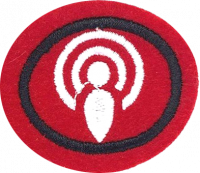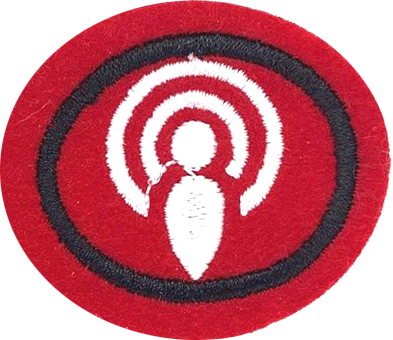Difference between revisions of "AY Honors/Podcasting/Answer Key/es"
(Created page with "</noinclude> <!-- 1. Definir los siguientes términos: -->") |
(Created page with "</noinclude>") |
||
| Line 61: | Line 61: | ||
<noinclude></noinclude> | <noinclude></noinclude> | ||
| − | + | <noinclude></noinclude> | |
| − | <noinclude | ||
| − | |||
{{CloseReq}} <!-- 1j --> | {{CloseReq}} <!-- 1j --> | ||
{{ansreq|page={{#titleparts:{{PAGENAME}}|2|1}}|num=1k}} <!--T:16--> | {{ansreq|page={{#titleparts:{{PAGENAME}}|2|1}}|num=1k}} <!--T:16--> | ||
| − | <noinclude> | + | <noinclude></noinclude> |
| − | </noinclude | ||
| − | |||
| − | + | <noinclude></noinclude> | |
| − | <noinclude | ||
| − | |||
{{CloseReq}} <!-- 1k --> | {{CloseReq}} <!-- 1k --> | ||
{{ansreq|page={{#titleparts:{{PAGENAME}}|2|1}}|num=1l}} <!--T:17--> | {{ansreq|page={{#titleparts:{{PAGENAME}}|2|1}}|num=1l}} <!--T:17--> | ||
| − | <noinclude> | + | <noinclude></noinclude> |
| − | </noinclude | ||
| − | |||
| − | + | <noinclude></noinclude> | |
| − | <noinclude | ||
| − | |||
{{CloseReq}} <!-- 1l --> | {{CloseReq}} <!-- 1l --> | ||
{{ansreq|page={{#titleparts:{{PAGENAME}}|2|1}}|num=1m}} <!--T:18--> | {{ansreq|page={{#titleparts:{{PAGENAME}}|2|1}}|num=1m}} <!--T:18--> | ||
| − | <noinclude> | + | <noinclude></noinclude> |
| − | </noinclude | ||
| − | |||
| − | |||
| − | + | <noinclude></noinclude> | |
| − | <noinclude | ||
| − | |||
{{CloseReq}} <!-- 1m --> | {{CloseReq}} <!-- 1m --> | ||
{{ansreq|page={{#titleparts:{{PAGENAME}}|2|1}}|num=1n}} <!--T:19--> | {{ansreq|page={{#titleparts:{{PAGENAME}}|2|1}}|num=1n}} <!--T:19--> | ||
Revision as of 19:18, 21 May 2021
Prerrequisito
Los Conquistadores desarrollando esta especialidad primero deben desarrollar la especialidad de Internet.
Para consejos e instrucciones, véase Internet.
1
1a
1b
1c
1d
1e
1f
1g
1h
1i
1j
1k
1l
1m
1n
Visual and audio files are the work and thus property of their producers/owners. There are three types of licenses in the recording industry Copyright - work cannot be used, adapted, copied, or published without the owners permission Creative Commons - work may be used without permission but only under certain circumstances. Creators set the rules for the way the work is used. Public Domain - work can be used, adapted, copied, and published completely without restrictions. No permission is required. Public domain is often work that has fallen out of copyright and not been renewed. Classic hymns, such as Amazing Grace are in the public domain. A good list of classic hymns in the public domain can be found at [link [1]]
Myths:
1. I can use any music if I'm not making money from it
2. It's okay if I play less than 10 seconds
3. As long as I provide attribution, the artist will understand
4. I can use any music under "fair use.”
5. "No copyright infringement intended."
2
2a
2b
2c
2d
3
3a
3b
Royalty free music is music available either from the public domain or from artists who have provided it to Creative Commons licensing. It is free for you to use without payment to anyone. Be aware that both the written work (if sheet music for example) and the performance must be either public domain or creative commons. For example, the hymn Amazing Grace is public domain, but if a modern music band performs the song, the performance may not be usable for podcasting. Royalty free sources include - Incompetech, The Free Music Archive, 909 Music on Soundcloud, Musopen, Danosongs, CCMixter, Purple Planet Music, Soundbible.
The software you use to create your podcast will have a line for you to put music in the background, as introduction, etc. Be sure your music is royalty free!
3c
3d
3e
4
4a
4b
4c
4d
5
6
7
Extras
a
b
c
- Pages using DynamicPageList3 parser function
- AY Honors/Prerequisite/Internet/es
- AY Honors/See Also/Internet/es
- AY Honors/Prerequisite/Journalism/es
- AY Honors/See Also/Journalism/es
- Adventist Youth Honors Answer Book
- Adventist Youth Honors Answer Book/noindex
- Adventist Youth Honors Answer Book/Regional
- Missing Localization/All/Podcasting AY Honour.png/es
- Missing Localization/All/British Union/en



